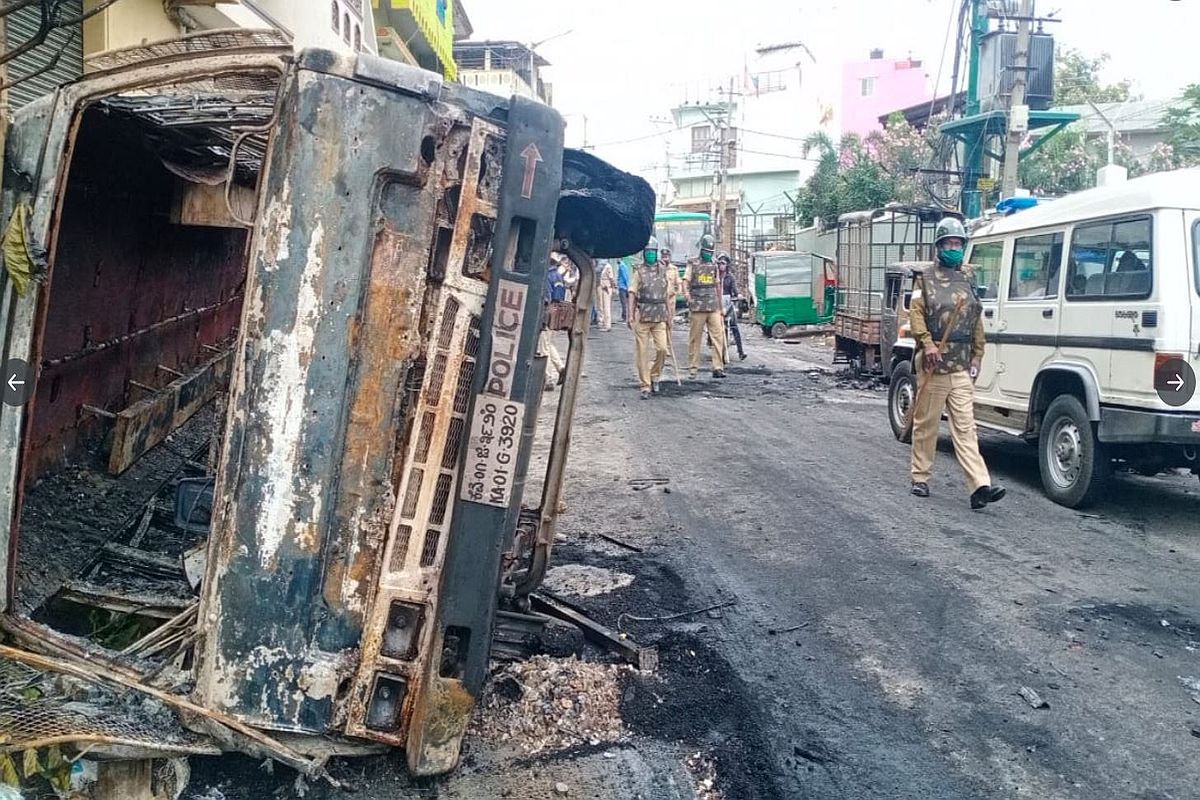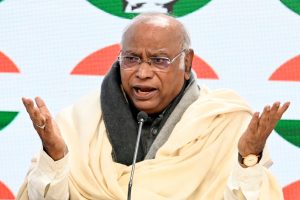While the violence that rocked Bengaluru was unfortunate, it highlights the tendency among some sections of the citizenry to take matters into their hands before giving the law a chance to address their grievances. The facts that have emerged are that a social media post caused outrage.
If the statement made on social media constituted a criminal offence, which prime facie it appeared to have, the offended community ought to have exhausted legal options before feeling provoked enough to take to the streets and indulge in widespread arson.
Instead, even as some elements within the community tried to offer saner counsel, the mob turned incendiary and attacked, first, the house of an MLA whose relative was reported to have made the offensive post, and then public establishments, including two police stations.
This is senseless and undermines the rule of law, even as it underscores the existence of a misplaced sense of entitlement that provokes mindless violence.
The law makes provision to tackle comments intended to provoke enmity between communities, and while its presence on the statute book in the same form that our erstwhile colonial masters wrote it is open to scrutiny, invoking it was an option that ought to have been exercised by those who felt offended by the social media post before they decided to play merry hell with public order.
The unfortunate fact is that certain sections of the populace have lost faith in the ability of the law enforcement machinery to address their grievances and believe that violence of the sort that rocked Bengaluru is the only way to deal with offenders, and to deter others from following suit. This is neither the first time such extreme reactions have occurred, nor will it be the last so long as broad social consensus is not reached on how to deal with those who seek to disturb communal harmony.
For its part, the Karnataka government has taken all the set-piece measures that follow such violence. It has arrested the original offender ~ the person who posted the comment ~ and some of those who indulged in the violence. It claims to have identified the group that mobilized the mobs and has arrested its leader. It has imposed prohibitory orders to bar assembly of more than four persons and ordered an inquiry by the district magistrate. It has further warned it will seek restitution for damage from those who caused it, which is easier said than done.
But these measures will in no way ensure that a similar incident does not occur some time in the future. For there will always be those who seek to provoke, sometimes as part of a larger plan and occasionally for no reason other than to cause offence, and those who will get sufficiently provoked by appeals to faith to respond disproportionately. Until an inter-faith initiative is taken to tackle provocations, we will continue to witness the sort of violence and arson Bengaluru was witness to.










